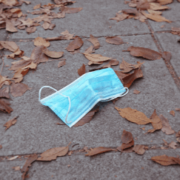Workplace Investigations – What Can You Learn from the Downing Street Parties?
Recent investigations into ‘gatherings’ at Downing Street are being undertaken by Sue Gray, who also investigated claims of a staff party at No. 10 on 18 December 2020, when London was subject to severe restrictions.
Her senior colleague, the Cabinet Secretary, Simon Case, stepped down from carrying out the investigations because it was possible that he had attended one of the parties himself. Sue Gray’s investigation now includes the ‘bring your own booze’ event on 20 May 2020 and a wine and cheese gathering five days earlier.
As workplace investigators, we are aware of the issues that can arise during a workplace investigation. We reflect on the key things to consider when conducting an investigation, and how to prepare for the process.
Expecting the Unexpected
In one of our recent workplace investigations, we were asked to find the source of a leak at a school about a member of staff being involved in a safeguarding incident. All was progressing smoothly until one member of staff named the school’s investigator as the source of the leak. The investigator had to step down, leaving us to run the investigation ourselves.
In an investigation you must be able to react to unexpected developments and make appropriate changes to ensure that the process remains fair.
New Matters Might Arise
Fresh matters commonly come to light during our investigations. It’s important for those who have commissioned the investigation to know this to establish whether they want any new matters to also be included, rather than just expanding the scope without consideration.
If the commissioning officer wants the investigation to be expanded to include new matters then an updated Terms of Reference will need to issued. If that happens then depending on the stage we have reached we may need to re-interview some people to whom we have already spoken. It’s another reminder that investigations often don’t proceed in a linear fashion.
How to Deal With Multiple Incidents
The other matter to consider is how the investigating officer should address multiple events. When we carry out investigations we know it is important to first consider each incident on its own merits, which means considering the evidence related to each event.
We then need to consider whether any findings and conclusions can then be drawn by considering the various events together. We ask questions such as:
- Are there any repeated patterns of behaviour?
- Are the incidents similar?
- Are the explanations similar?
In a disciplinary investigation it may be that any single incident in isolation would not merit a recommendation that it should be dealt with at a disciplinary hearing, but cumulative incidents would merit being considered at a formal hearing. This is particularly the case if an employee has been spoken to informally about their behaviour after one incident and then does something similar on a later date. It’s often only when we take an overview that the interconnected nature of the events reveal themselves.












